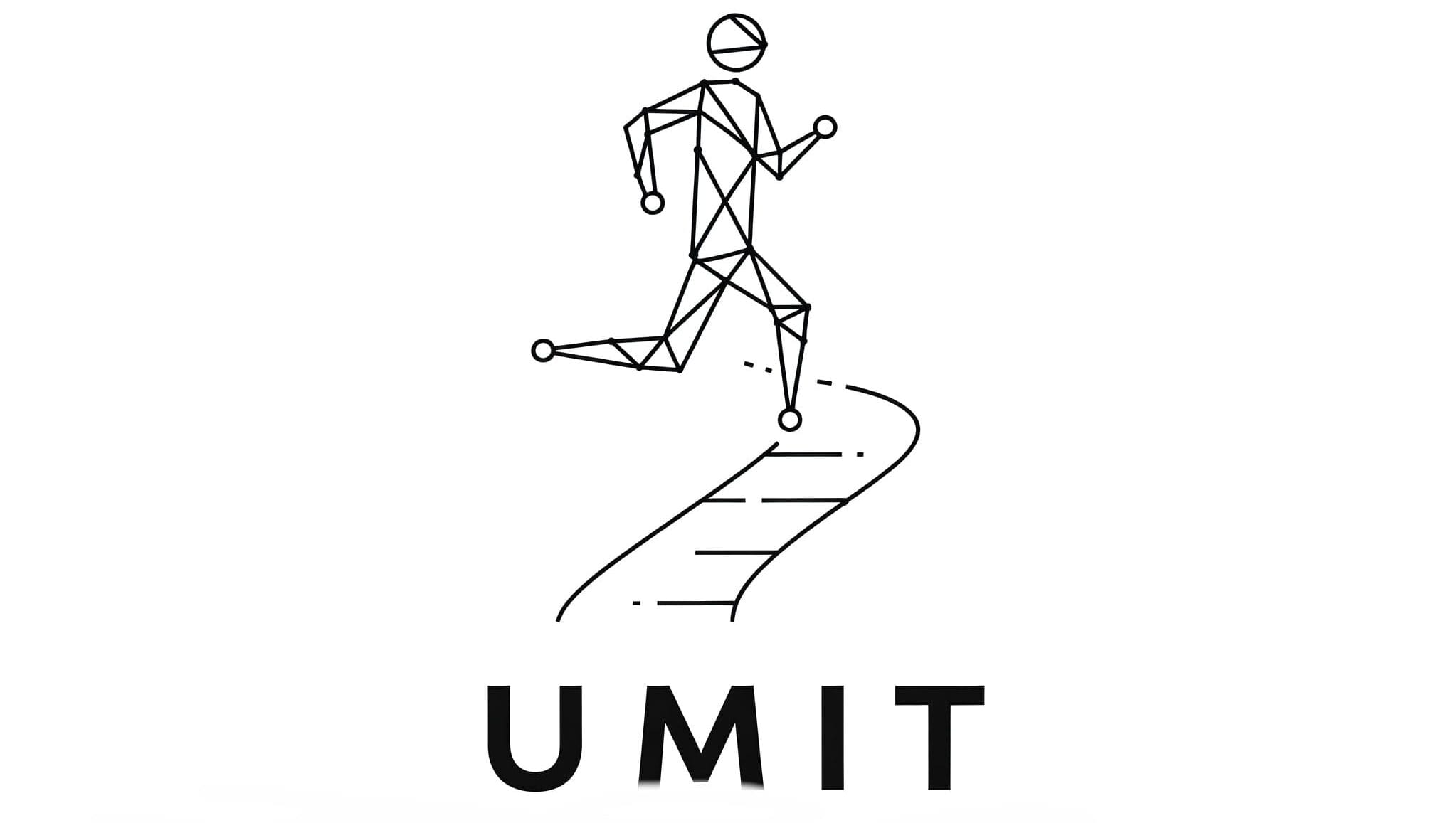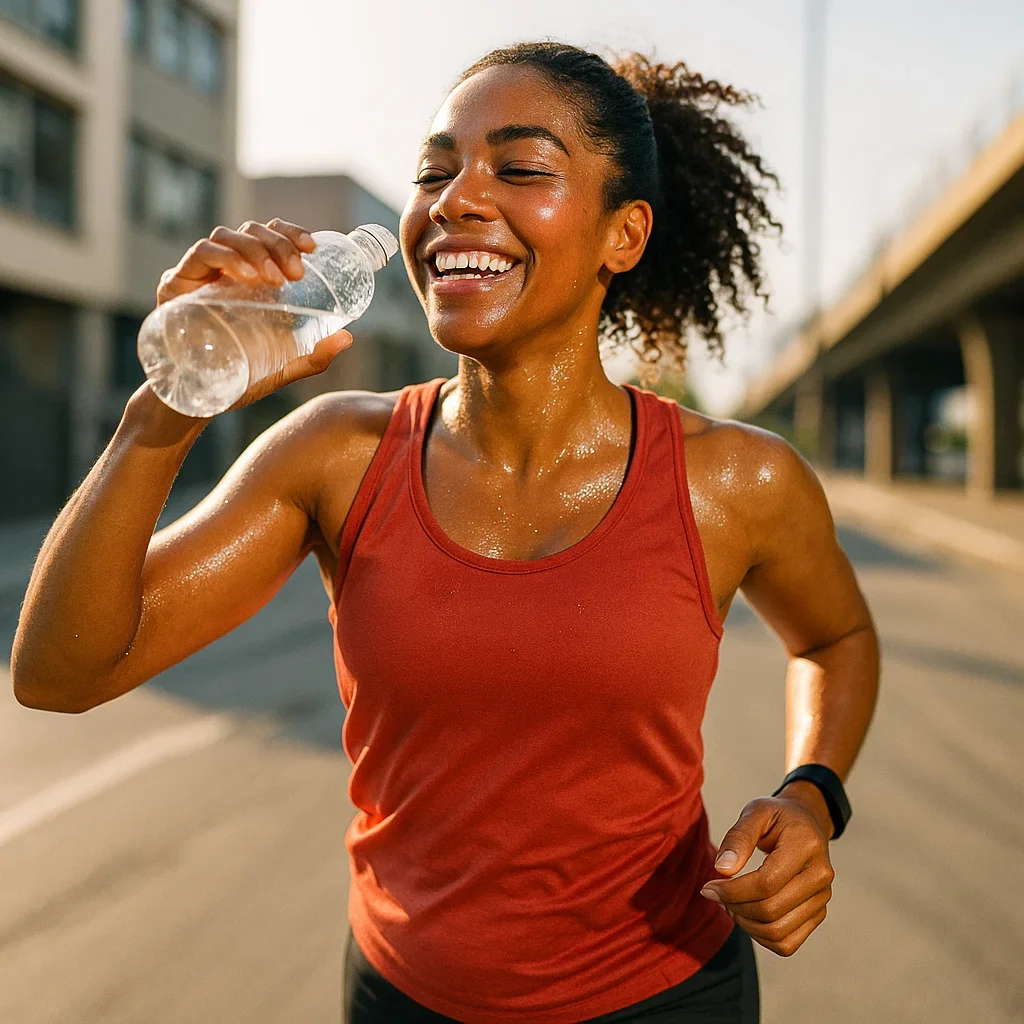🟢 Introduction
Your skin is more than just your outer layer — it’s your body’s largest organ, your first defense, and a reflection of what’s happening inside.
And when it comes to healthy, glowing skin? Hydration is everything.
Whether you’re logging double-digit runs or just navigating a hot, dry day, hydration can make the difference between skin that’s soft and elastic — and skin that’s tight, flaky, or prematurely aged.
In this guide, we’ll cover:
- How hydration affects your skin (inside and out)
- Signs of dehydration your skin shows first
- The best ways for runners to hydrate for skin resilience and recovery
You may already hydrate for performance. Now it’s time to hydrate for your face.
💦 1. How Hydration Impacts Skin Function
Your skin has a natural moisture barrier made of water, lipids, and protective proteins. This barrier:
- Retains moisture
- Keeps out pathogens and pollutants
- Supports elasticity, softness, and healing
When you’re dehydrated, this barrier weakens.
🧬 What Happens to Skin When You’re Dehydrated?
- Dryness: Surface feels rough or tight
- Dull tone: Skin looks flat, not radiant
- Increased sensitivity: Redness or stinging with products
- Flakiness or peeling: Especially around nose, chin, and forehead
- Worsened wrinkles: Fine lines look deeper when skin is dry
Even mild dehydration (1–2% bodyweight loss) can impact skin texture — especially in runners, who sweat heavily and often train in the sun or wind.
“Your skin doesn’t store water. It reflects how hydrated the rest of your body is.”
🥤 2. Hydration for Runners: What You Drink Shows on Your Face
As a runner, your hydration needs are already higher. But what you drink — and when — can affect how your skin looks and feels post-run.
🧃 Smart Hydration Guidelines:
- Daily baseline: 30–40 ml/kg bodyweight (2–3 liters for most people)
- Before runs: 400–500 ml 1–2 hours before your workout
- During long runs: 150–250 ml every 15–20 minutes if >45 minutes
- After runs: 500–750 ml with sodium/electrolytes within 30 mins
🧪 Don’t Just Drink Water — Balance Fluids
- Electrolytes (sodium, potassium, magnesium) prevent water loss through urine and keep skin cells hydrated
- Add slices of cucumber, lemon, or chia seeds to boost hydration efficiency
- Avoid alcohol and excess caffeine — both are diuretics and can dry out skin
If your lips are cracked, skin is tight, and urine is dark — your skin’s screaming for hydration.
🧴 3. Topical Hydration: How to Lock In Moisture from Outside
Drinking water is step one — but if your skin barrier is weak, that moisture can evaporate just as fast.
That’s where topical hydration steps in.
🧼 Step 1: Gentle Cleansing
- Use pH-balanced, sulfate-free cleansers
- Avoid bar soaps or foaming gels that strip oils
- Cleansing too often (especially post-run) can worsen dehydration
💧 Step 2: Layering Moisture
Think of your post-run skincare like fueling:
- Humectants (water magnets): Hyaluronic acid, glycerin, aloe vera
- Emollients (softeners): Panthenol, squalane, jojoba
- Occlusives (sealers): Shea butter, petrolatum, lanolin
🧴 Simple Routine After Your Run:
- Rinse face/body with lukewarm water
- Pat dry — leave skin slightly damp
- Apply a serum with hyaluronic acid
- Follow with a moisturizer or balm to lock it in
- For lips, apply a thick balm immediately after rinsing
Tip: Reapply lightweight moisturizer if running again later that day — sweat and towels remove it faster than you think.
🍊 4. Nutrients That Support Hydrated, Healthy Skin
Hydration isn’t just about water — it’s also about what you feed your skin from within.
🥗 Key Skin-Hydrating Nutrients:
| Nutrient | Why It Matters | Food Sources |
|---|---|---|
| Omega-3s | Strengthen skin barrier, reduce inflammation | Flaxseed, chia, walnuts, algae oil |
| Vitamin E | Protects lipids from oxidative stress | Almonds, sunflower seeds, spinach |
| Zinc | Helps repair skin and retain moisture | Pumpkin seeds, oats, lentils |
| Vitamin C | Boosts collagen and supports skin healing | Citrus, bell peppers, kiwi |
| Silica | Supports elasticity and hydration | Cucumbers, oats, brown rice |
You can also consider:
- Collagen peptides (especially type I + III)
- Ceramide supplements (plant-based options available)
- Chia water or infused herbal teas for added skin benefits
Pro tip: Eating healthy fats + antioxidants = water stays in the skin longer.
✅ Final Thoughts
You hydrate to run faster, recover quicker, and avoid cramps.
But do you hydrate to protect your skin?
Your skin is constantly exposed to sun, sweat, wind, and friction — especially as a runner. And while topical products help, the truth is:
Skin hydration starts from the inside — and finishes on the outside.
When your hydration strategy is dialed in:
- Skin stays smooth, soft, and elastic
- You’re less prone to chafing, irritation, or flakiness
- Wrinkles and fine lines appear less prominent
- You heal faster after long runs and races
But when you neglect it? Your face tells the story — tight, dry, rough, and tired.
So here’s your new checklist after every run:
☑️ Rehydrate
☑️ Eat water-rich foods
☑️ Apply humectants + moisturizers
☑️ Protect your barrier
Don’t let your skin be the weak link in your running performance.
Hydrate like an athlete — and your skin will recover like one too.
The glow doesn’t just come from the miles — it comes from what you do after them.
❓ Frequently Asked Questions
💧 Does drinking more water improve skin instantly?
🥤 How much water should runners drink daily for skin health?
☕ Does caffeine dehydrate my skin?
🧂 Do electrolytes help skin hydration?
🧼 What kind of cleanser should I use for dehydrated skin?
🌬️ Does dry air make hydration harder?
🧴 Is hyaluronic acid enough to hydrate skin?
🧃 Can fruit or herbal infusions boost hydration?
🥗 What foods help with skin hydration?
💄 Can moisturizers hydrate skin without drinking water?
🏃 How does running affect hydration levels?
💥 Why does my face look tired or dry after a long run?
🧪 Do supplements help with skin hydration?
🌿 Should I avoid alcohol for skin hydration?
🌞 Does sun exposure affect hydration?
📉 Can overtraining lead to dehydrated skin?
🥥 What natural oils help seal in skin hydration?
🧖 Should I mist my face during hot runs?
💤 Does sleep affect skin hydration?
📆 How long until I see results from better hydration habits?
📚 Further Reading
🔗 Related Articles from Our Blog
Understanding the causes of flakiness, tightness, and how to fix it.
Step-by-step guide for cleansing, moisturizing, and repair.
What really causes facial changes in long-distance runners.
🌐 External Resources
🧠 Quick Quiz: How Hydrated Is Your Skin Knowledge?
- What is the first visible sign of dehydration on the skin?
- True or False: Drinking plain water is enough for hydration during long runs.
- Which nutrient acts as a humectant in skincare products?
- Name two dietary nutrients that support skin hydration.
- How soon after a run should you rehydrate for skin and performance recovery?
✅ Quiz Answers
- 1. Tightness, flakiness, or dull tone
- 2. False — electrolytes are essential during intense efforts
- 3. Hyaluronic acid
- 4. Omega-3s and Vitamin C (others: zinc, silica, Vitamin E)
- 5. Within 30 minutes post-run
🔗 Share this hydration guide with fellow runners

About the Author
Lost Pace is an ultramarathon runner, shoe-tester and the founder of umit.net. Based year-round in Türkiye’s rugged Kaçkar Mountains, he has logged 10,000 + km of technical trail running and completed multiple 50 K–100 K ultras.
Blending mountain grit with data, Lost analyses power (CP 300 W), HRV and nutrition to craft evidence-backed training plans. He has co-written 260 + long-form guides on footwear science, recovery and endurance nutrition, and is a regular beta-tester of AI-driven coaching tools.
When he isn’t chasing PRs or testing midsoles, you’ll find him sharing peer-reviewed research in plain English to help runners train smarter, stay healthier and finish stronger.
Ultrarunner · Data geek · Vegan athlete

